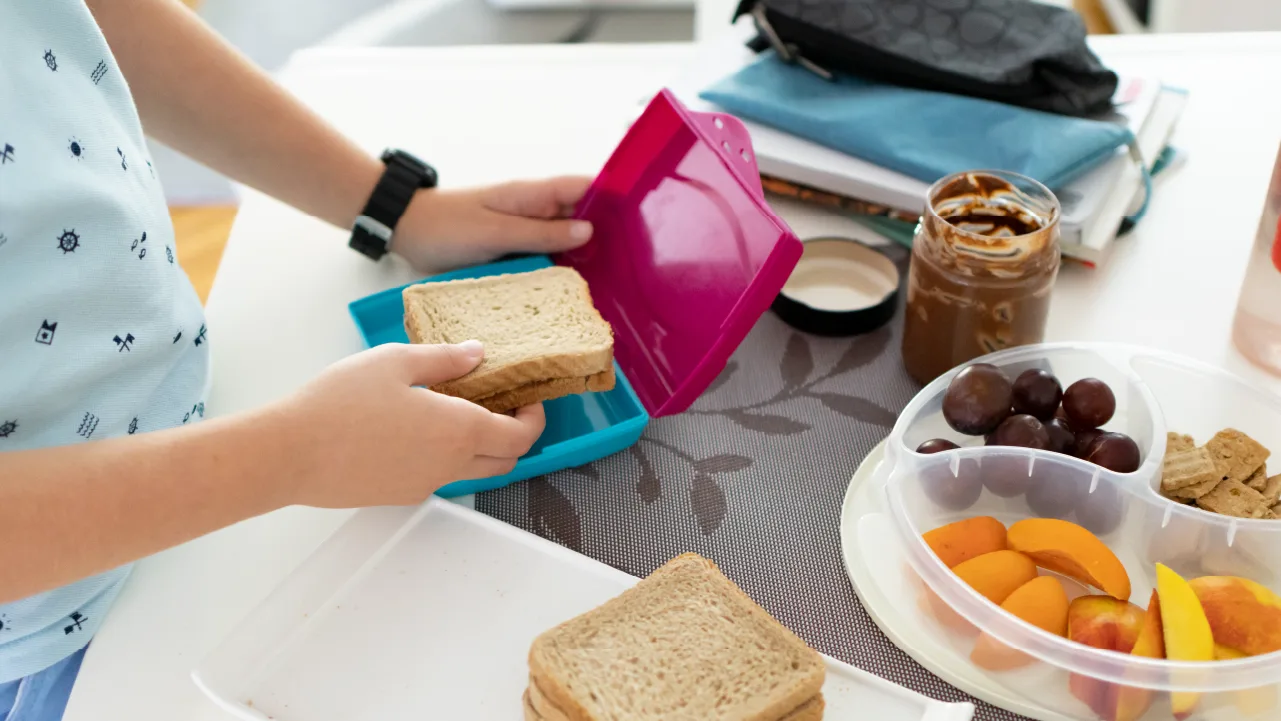At Achieve, we're committed to providing you with the most accurate, relevant and helpful financial information. While some of our content may include references to products or services we offer, our editorial integrity ensures that our experts’ opinions aren’t influenced by compensation.
Everyday Finances
5 ways to slash back-to-school expenses (even the big ones!)
Aug 15, 2024
Written by
Reviewed by
Get a free debt evaluation
Back-to-school season takes a little creativity—and a lot of patience—to navigate. Kids are trying to get back into their routines while parents are looking for smart ways to save on shopping.
Some back-to-school expenses take up more room in your budget than others. These tips can help you get your family ready for the new school year and save big on back-to-school spending when money is tight.

1. Laptops/tablets
Make a trade. Trade-in programs let you trade in your old laptop or tablet toward the purchase of a new one. You can get cash or gift cards that you can use to buy a replacement.
Sell your old tech. You could also try selling your laptop or tablet yourself if it would mean a bigger payoff than trading it in. Sites like LaptopNuts and Swappa will buy used laptops and tablets for cash, even if they're broken.
Shop deals. Laptops and tablets are hot items during back-to-school season and it's fairly easy to find them on sale. If you see a laptop on sale that you want but the store is sold out, ask about a rain check so you can get it at the lower price once it's back in stock.

2. Graphing calculators
A graphing calculator can cost $100 or more. If your child needs one for math and science classes, you can try these tips to save money.
Rent. If you only need a calculator for a single class, it could make more sense to rent instead of buying. For $38 a semester, you can rent one from a site like Graphtor and potentially save $25.
Use an app. Kids who don't need a handheld calculator can try free online versions instead. Desmos, for example, offers a free graphing calculator that anyone can use.
Buy used. Unless your child's school specifies that they need to have the newest model, a used graphing calculator can work just as well. School Specialty sells used calculators but you can also find them on eBay or Facebook Marketplace.

3. Clothing
Kids grow fast, and you might need to outfit them with new clothes and shoes before school starts. There are lots of ways to save on clothes for the entire school year.
Swap. If you're friends with other families, you might put together a clothing swap. Everyone brings the clothes their kids have outgrown and swaps them for items in the size they need.
Try thrift and consignment stores. Thrift and consignment stores can be a treasure trove for parents on a budget. You can try a kid-focused thrift store, like Once Upon a Child, or make the rounds of all the shops in your area.
Go minimalist. Building a capsule wardrobe for kids that consists of fewer, higher-quality pieces can save money in the long run. A capsule wardrobe consists of a few pieces that you can mix and match to create multiple outfits.

4. Supplies
School supplies can add up. Your child might need notebooks, folders, binders, pens, pencils, glue sticks—--but it's possible to get it all on a limited personal budget. Here's how.
Shop at home. Take a look around the house and chances are you have some unused school supplies already on hand. Any items you can find at home are things you won't have to spend money on.
Try the dollar store. Dollar stores frequently offer discounted prices on school supply basics. If you don't have a dollar store nearby, scout out thrift stores for school supplies that are still in good shape.
Buy in bulk if it's cheaper. If you have multiple kids to shop for, it could make sense to buy items like folders, notebooks and pencils in bulk. Compare prices at wholesale clubs and discount stores to see which one offers the cheapest option.

5. Snacks/lunch supplies
Kids need to eat, which means you may need to budget for snacks, school lunches and weeknight dinners. Here's how to save money on food throughout the school year.
Meal plan. A weekly meal plan saves time and money since you know what you need to make—and what you need to shop for. You can plan out breakfast, lunch, dinner and snacks based on what's on sale at the grocery store each week.
Use cash back apps. Cash back apps pay you back a percentage of what you spend at grocery stores and other retailers. Ibotta is one example of an app that you can use to save on grocery purchases.
Join loyalty programs. Most grocery stores have a loyalty program that allows you to unlock special coupons or earn rewards on purchases. It's usually free to join and you can pair your coupon savings with cash back offers to maximize money saved.
Be the early bird to save the most money
Here's one more tip for saving on back-to-school expenses: Plan ahead. The sooner you start to think about possible costs, the easier it is to find ways to save. Keep track of all your back-to-school expenses in the MoLO app so you won't have to wonder where your money went or how much you’ve spent.
Author Information
Written by
Rebecca is a senior contributing writer and debt expert. She's a Certified Educator in Personal Finance and a banking expert for Forbes Advisor. In addition to writing for online publications, Rebecca owns a personal finance website dedicated to teaching women how to take control of their money.
Reviewed by
Kimberly is Achieve’s senior editor. She is a financial counselor accredited by the Association for Financial Counseling & Planning Education®, and a mortgage expert for The Motley Fool. She owns and manages a 350-writer content agency.
Related Articles
Compound interest is a two-sided coin. Good for your savings, bad for your debts. Find out more here.
If your bills are getting out of hand, debt relief is one way to take control of your finances and defeat your debt.
These subtle (and not so subtle) red flags could be signs that you’re falling into a debt trap. Read more.



